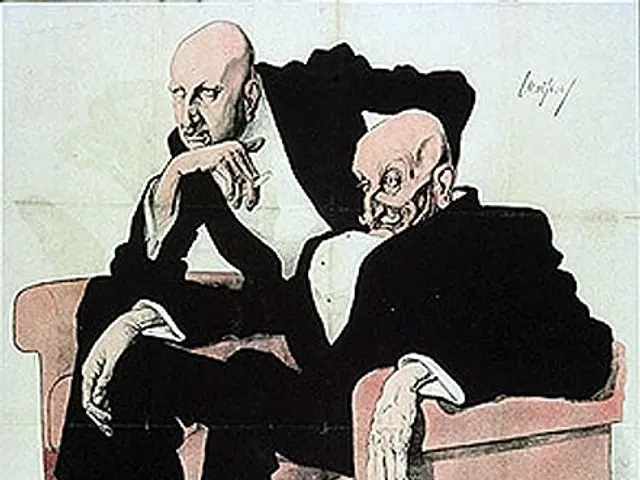Trump's newly appointed FHFA director unveils no immediate intention for Fannie Mae and Freddie Mac privatization.
Bill Pulte, the new head of the Federal Housing Finance Agency under the Trump administration, has no immediate plans to privatize Fannie Mae and Freddie Mac.
"These entities shouldn't be in conservatorship forever," Pulte told CNN, noting the importance of considering the potential impact on mortgage rates before making any moves.
Attempts to wrest these mortgage titans from government control during the first Trump administration failed. Many Republicans, who see the conservatorship as temporary, have long called for its dissolution. Yet, the current housing market, marred by high borrowing rates, a supply shortage, and record-breaking home prices, has some experts issuing warnings about the potential disturbance to mortgage markets if privatization were to occur.
Mortgage rates, albeit lowered from recent highs, remain significantly elevated compared to historical norms. The average 30-year fixed mortgage rate for the week ending on Thursday clocked in at 6.65%, according to Freddie Mac.
Pulte, a scion of the PulteGroup, the nation's third-largest homebuilder, doesn't consider the privatization of Fannie and Freddie a top priority this time around. He emphasized the need for a comprehensive study on the potential consequences for mortgage rates before any action is taken.
In a nutshell, Fannie and Freddie were taken under government control following the 2008 housing crisis to stabilize the market. They don't issue mortgages directly; instead, they buy mortgages from lenders and repackage them for investors, facilitating a steady cash flow that helps mortgage lenders offer competitive interest rates.
Experts worry that privatization could spook investors absent warnings that the government would step in during a crisis like in 2008. These apprehensive investors might demand higher rates as a precaution.
Several experts argue that the US government's stake in Fannie and Freddie, currently worth $147 billion, according to JPMorgan, is a valuable asset to American taxpayers.
As the newly appointed FHFA director, Pulte's focus will primarily be on eradicating fraud within Fannie and Freddie and ensuring their efficient operation. He expressed confidence in the entities, stating, "They're safe and sound within reason. There are opportunities to strengthen the safety and soundness of Fannie Mae and Freddie Mac."
Pulte, the new head of the Federal Housing Finance Agency, has expressed a need for caution regarding the privatization of Fannie Mae and Freddie Mac, given the potential impact on mortgage rates in 2024. Unlike in the past, he does not consider privatization a top priority, stressing the importance of conducting a thorough study on the potential consequences for mortgage rates before any action is taken. Furthermore, the current federal stake in Fannie and Freddie, valued at $147 billion, is seen as a significant asset to American taxpayers.







